Shindana Toys, a division of Operation Bootstrap, Inc., was a South Central Los Angeles, California cooperative toy company formed in 1968, one of many Operation Bootstrap initiatives undertaken following the 1965 Watts riots. Company proceeds supported businesses in the Watts area.

Shindana (a Swahili word roughly meaning “to compete”) Toys was community-owned and founded by Louis S. Smith, II and Robert Hall. The latter was the company’s first CEO and President; though he was succeeded in both posts by Smith. The Chase Manhattan Bank, the Mattel Toy Company, Sears Roebuck & Co. and Equitable Life Assurance helped finance portions of the Shindana Toys operations.
From a shop on Vermont Avenue, Los Angeles, California, Doris Conner–an African American, entrepreneurial businesswoman–along with her daughters, Lynne and Tuesday Conner, created, designed, and manufactured many of the clothes worn by Shindana Dolls. They also manufactured the Flip Wilson and Redd Foxx dolls.
Shindana Toys was historically significant for being one of the first toy companies (if not the first) to market ethnically-correct Black dolls. A goal of the company was to raise Black consciousness and improve self-image. In a 1970’s Los Angeles Associated Press article, company president, Louis Smith said, “We believe that only by learning to love oneself can one learn to love others…Shindana believes that by marketing black dolls and games that both black and white children can learn to relate to at an early age, the company can foster the spirit of what Shindana is all about, love.”
Black Celebrity Dolls
Shindana dolls were created with the likenesses of positive Black celebrities, including Flip Wilson, Jimmie Walker, Julius Erving aka Dr. J., O.J. Simpson, Marla Gibbs, Diana Ross and Michael Jackson.
Other Dolls Include Cuddly Li’l Souls
This line featured “soft cloth-body rag dolls with natural-style hair” and clothing imprinted with uplifting phrases like “Peace,” “Right On,” “I’m Proud, Say It Loud”, and “Learn, baby, learn.” The last phrase was a transformation of the “Burn, baby, burn” chants heard during the Watts Riots. These dolls were given names like “Sis,” “Natra,” “Wilky,” and “Coochy.”
Little Friends Collection
This collection featured Black, Caucasian, Asian, and Hispanic boys and girls–most about 12 inches tall and with attention given to ethnic details.
Career Girl, Wanda:”Each of Wanda’s boxes included a little pamphlet explaining the doll’s particular profession. Photos of real Black women in these professions and their comments about the nature of their jobs gave suggestions on what the child might do to learn more about the job.” Some of Wanda’s careers included nurse, skydiver/race car driver, tennis player, and singer.
Slade, Super Agent
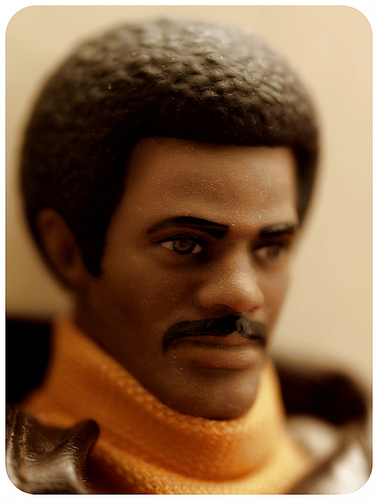 Education played a major role in the creation of the Shindana doll line. Shindana refused to make military figures for obvious reasons. The president of the company, Mr. Lou Smith, transformed the slogan, “Burn, Baby Burn” (chanted during the 1965 Watts riot) to “Learn, Baby Learn”. Shindana manufactured several male figures and dolls made in the likeness of both male and female Black celebrities, but never a military figure.
Education played a major role in the creation of the Shindana doll line. Shindana refused to make military figures for obvious reasons. The president of the company, Mr. Lou Smith, transformed the slogan, “Burn, Baby Burn” (chanted during the 1965 Watts riot) to “Learn, Baby Learn”. Shindana manufactured several male figures and dolls made in the likeness of both male and female Black celebrities, but never a military figure.
One of their most popular male figures/dolls, Slade, Super Agent, continues to be highly sought after today. This 9-1/2″, obviously Shaft-inspired, quite handsome doll was accesorized with crime-solving gadgets, but no weapons. Today, Career Girl Wanda and Slade, Super Agent continue to command astronomical final bid amounts on online auction sites.
Mr. Lou S. Smith, II. believed that through his dolls, black children would gain a positive self-image. In a 1970’s Los Angeles Associated Press article, Mr. Smith stated, “We believe that only by learning to love oneself can one learn to love others.” He added, “Shindana believes that by marketing black dolls and games that both black and white children can learn to relate to at an early age, the company can foster the spirit of what Shindana is all about, love.”
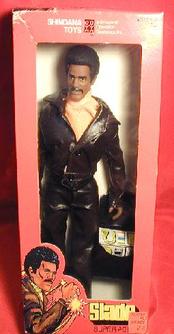 Mr. Smith and Mr. Hall are now both deceased, but their legacy lives on through their remarkable, ethnically correct Shindana dolls — “Dolls made by a Dream”.
Mr. Smith and Mr. Hall are now both deceased, but their legacy lives on through their remarkable, ethnically correct Shindana dolls — “Dolls made by a Dream”.
According to Black Dolls 1820-1991, an Identification and Value Guide, (BDIVG) book 1, The B. Wright Toy Company, Inc., circa late 1960s-?, was “the first ‘Negro’ toy company to manufacture dolls and stuffed toys”. Beatrice Wright was a female entrepreneur who realized the need for natural-looking dolls for children of color. Her dolls were known as the “Ethnic People Dolls”.
While this company also manufactured several different Black dolls, the most highly sought after ones today are Christine and Christopher (pictured left, courtesy of Debra Richardson). Christine and Christopher can still be found today on the secondary market. They are 19” tall, constructed of rigid vinyl, have brown sleep eyes and black rooted hair.
It is uncertain when the B. Wright Company closed its doors, but some of its molds were sold to Totsy. The dolls continued to be manufactured under that company’s name throughout the late 1980s and possibly into the early 1990s.

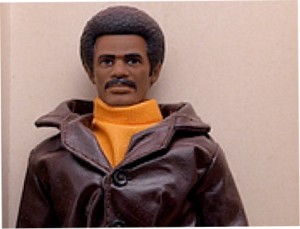






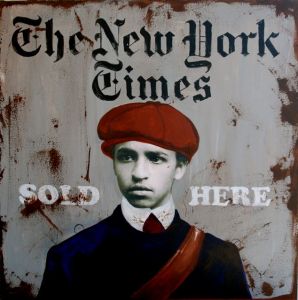
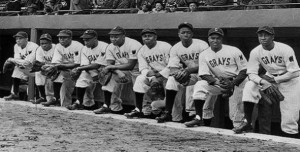

9 Comments
Hi, I have a doll from 1969 that says DEE BEE on the tag, and it says “Shindana Toys a division of Operation Bootstrap Inc” on it, also. She has a fabric body with rubber head and hands.
Would you be interested in buying it?
Please let me know. Thanks!
Brenda
Hello I am not a collector but I would love to own another one. I still have my Dee -Bee after all these years.
My Mother got a few punches from my Dad because she was all I wanted for Christmas. My Mother made sure I got it and My Father would not go to the check out.
My Mother loved everyone and color of skin makes no difference to Mom
But it was my theory that Black dolls needed more Love and seeing my Dads viewpoint must of made me think that all the more.
It is So awesome to see this website. Exactly what the maker wanted to do was bridge a gap I am so glad that I had my Dee Bee to teach me this too.
I’m 52 and still have my Dee Bee doll. It was rare for a white child to have a black doll where I grew up. God bless my parents for raising me to love everyone. I also had the Flip Wilson/Geraldine doll, but no longer have it. Love reading the hI story of this company.
I am a daughter of Louis Smith. He was a truly amazing person. I have a few of the Shindana dolls and a beautiful Bootstrap dashiki in my collection. Here is link to an insightful documentary about Operation Bootstrap.
https://youtu.be/UIr6wtT6Fng
Thank you for sharing Angela Smith and Uncut Funk, My Mother got a contract to make dresses for Baby Nancy. As I child I worked in her factory making dolls. I grew up to sew for Chaka Khan, Mr. T and many other Hollywood celebrities and in New York on Broadway. I’m a proud prodigy of Operation Bootstrap
Dear Ms. Smith,
We are looking for photos of your late father, Lou Smith, for an upcoming episode of “Lost L.A.” which airs on public TV station KCET. Would you please contact me at your earliest convenience? 213-821-5568 or timstant@usc.edu.
The episode centers in part on Operation Bootstrap, Shindana Toys, and his phrase “Learn Baby Learn”. Any help would be greatly appreciated.
Thank you,
Tim Stanton
Correction: My moms shop where we created for Shindana was on Central Avenue, we did move to Vermont Avenue to years later. Doris Conner is my mom.
Ms. Connor,
I would like to talk with you about our museum including a Shindana doll in our exhibition “Kids’ Stuff: California Designs for Children.” Bill Stern, Museum of California Design (www.mocad.org), E-mail: billstern@mocad.org.
Tuesday
Our Moms worked together on this Shindana project. She had the upholstery shop next door to Bootstrap. My sister was Bootstrap’s executive secretary and her daughter did a marketing ad for Baby Nancy. How’s your Mom? akt487@aol.com